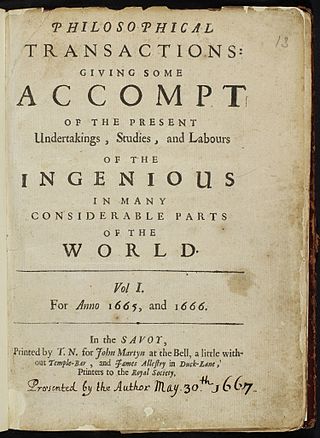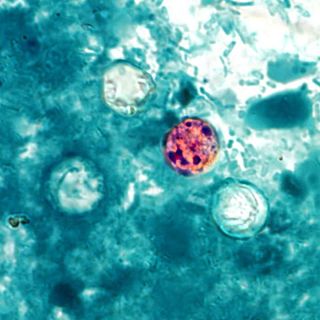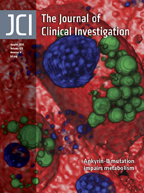
Pathology is the study of disease and injury. The word pathology also refers to the study of disease in general, incorporating a wide range of biology research fields and medical practices. However, when used in the context of modern medical treatment, the term is often used in a narrower fashion to refer to processes and tests that fall within the contemporary medical field of "general pathology", an area that includes a number of distinct but inter-related medical specialties that diagnose disease, mostly through analysis of tissue and human cell samples. Idiomatically, "a pathology" may also refer to the predicted or actual progression of particular diseases, and the affix pathy is sometimes used to indicate a state of disease in cases of both physical ailment and psychological conditions. A physician practicing pathology is called a pathologist.

Forensic pathology is pathology that focuses on determining the cause of death by examining a corpse. A post mortem examination is performed by a medical examiner or forensic pathologist, usually during the investigation of criminal law cases and civil law cases in some jurisdictions. Coroners and medical examiners are also frequently asked to confirm the identity of remains.

Scientific literature comprises academic papers that report original empirical and theoretical work in the natural and social sciences. Within a field of research, relevant papers are often referred to as "the literature". Academic publishing is the process of contributing the results of one's research into the literature, which often requires a peer-review process.
Pathophysiology is a branch of study, at the intersection of pathology and physiology, concerning disordered physiological processes that cause, result from, or are otherwise associated with a disease or injury. Pathology is the medical discipline that describes conditions typically observed during a disease state, whereas physiology is the biological discipline that describes processes or mechanisms operating within an organism. Pathology describes the abnormal or undesired condition, whereas pathophysiology seeks to explain the functional changes that are occurring within an individual due to a disease or pathologic state.

Cyclosporiasis is a disease caused by infection with Cyclospora cayetanensis, a pathogenic apicomplexan protozoan transmitted by feces or feces-contaminated food and water. Outbreaks have been reported due to contaminated fruits and vegetables. It is not spread from person to person, but can be a hazard for travelers as a cause of diarrhea.

The Journal of Clinical Investigation (JCI) is a twice-monthly peer-reviewed medical journal covering biomedical research. It was established in 1924 and is published by the American Society for Clinical Investigation, one of the oldest and most respected medical honor societies in the United States. Articles focus on the mechanisms of disease, with an emphasis on basic research, early-stage clinical studies in humans, and new research tools and techniques. The journal also publishes reviews in edited series or as stand-alone articles, commentaries on research, editorials, and feature items. The editor-in-chief is Elizabeth M. McNally.
Clinical and Vaccine Immunology (CVI) was a peer-reviewed journal published by the American Society for Microbiology. CVI enhances our understanding of the immune response in health and disease by showcasing important clinically relevant research, including new animal models for human immunologic diseases, viral immunology, immunopathogenesis, and clinical laboratory immunology. In particular, the journal highlights important discoveries in immunization and vaccine research, such as the development and evaluation of vaccines, human and animal immune responses to vaccines, vaccine vectors, adjuvants and immunomodulators, quantitative assays of vaccine efficacy, and clinical trials. The journal publishes primary research articles, editorials, commentaries, minireviews, and case reports. Articles are freely accessible after six months. Through its "Global Outreach Program", free online access is available to qualified microbiologists in eligible developing countries.

A review article is an article that summarizes the current state of understanding on a topic within a certain discipline. A review article is generally considered a secondary source since it may analyze and discuss the method and conclusions in previously published studies. It resembles a survey article or, in news publishing, overview article, which also surveys and summarizes previously published primary and secondary sources, instead of reporting new facts and results. Survey articles are however considered tertiary sources, since they do not provide additional analysis and synthesis of new conclusions. A review of such sources is often referred to as a tertiary review.
Frederick A. Murphy is a retired American virologist. He was a member of the team of scientists that discovered the Ebola virus at the Centers for Disease Control and Prevention (CDC), where he served as Chief of Viropathology, near Emory University in Atlanta, Georgia, in 1976, and is internationally known for his work on rabies, encephalitis and hemorrhagic fevers, with over 250 peer-reviewed journal articles. Murphy was as an electron microscopy pioneer in the field of virology, best recognized for obtaining the first electron micrograph of an Ebola viral particle at the CDC in 1976.
Allied Academies is a reportedly fraudulent corporation chartered under the laws of North Carolina. Its postal address is in London, United Kingdom. It presents itself as an association of scholars, with supporting and encouraging research and the sharing and exchange of knowledge as its stated aims. The organization consists of 30 affiliate academies, which provide awards to academics and publish academic journals both online and in hard copy for members. Since 2015 the organization has been listed on Jeffrey Beall's list of "potential, possible, or probable predatory scholarly open-access publishers". It is in a partnership with OMICS Publishing Group which uses its website and logo. In 2018, OMICS owner Srinubabu Gedela declared that he had informed the Nevada court that Allied Academies was a subsidiary of OMICS International. During a conference in 2018, they falsely listed a prominent chemist among its organizing committee who had not agreed to this and was not affiliated with Allied Academies.

The Journal of Clinical Pathology (JCP) is a peer-reviewed medical journal covering all aspects of pathology, published by the BMJ Group and co-owned by the Association of Clinical Pathologists. Diagnostic and research areas covered include histopathology, virology, haematology, microbiology, cytopathology, chemical pathology, molecular pathology, forensic pathology, dermatopathology, neuropathology, and immunopathology. Each issue contains reviews, original articles, short reports, case reports, correspondence, and book reviews.

Clinical Cancer Research is a peer-reviewed medical journal on oncology, including the cellular and molecular characterization, prevention, diagnosis, and therapy of human cancer, medical and hematological oncology, radiation therapy, pediatric oncology, pathology, surgical oncology, and clinical genetics. The applications of the disciplines of pharmacology, immunology, cell biology, and molecular genetics to intervention in human cancer are also included. One of the main interests of Clinical Cancer Research is on clinical trials that evaluate new treatments together with research on pharmacology and molecular alterations or biomarkers that predict response or resistance to treatment. Another priority for Clinical Cancer Research is laboratory and animal studies of new drugs as well as molecule-targeted agents with the potential to lead to clinical trials, and studies of targetable mechanisms of oncogenesis, progression of the malignant phenotype, and metastatic disease. The journal is published by the American Association for Cancer Research.

The Journal of Veterinary Diagnostic Investigation is an international peer-reviewed academic journal published bimonthly in English that publishes papers in the field of Veterinary Sciences. The journal's editor is Grant Maxie, DVM, PhD, DACVP. The Journal has been in publication since 1989 and is currently published by SAGE Publications in association with American Association of Veterinary Laboratory Diagnosticians, Inc.
Veterinary Pathology is a peer-reviewed academic journal that publishes papers in the field of veterinary pathology. As of 2017, the journal's editor is Jeff L. Caswell, Pathology Professor at the University of Guelph. It has been in publication since 1964 and is currently published by SAGE Publications, in association with the American College of Veterinary Pathologists, the European College of Veterinary Pathologists, and the Japanese College of Veterinary Pathologists.
Cardiovascular Diabetology is a peer-reviewed open access medical journal covering the intersection of cardiology and diabetology, meaning the connection between diabetes, metabolic syndrome and cardiovascular diseases. It is published by BioMed Central and was established in 2002, with Enrique Fisman and Alexander Tenenbaum as founding editors-in-chief. Alexander Tenenbaum died in 2022.

Elaine Sarkin Jaffe is a senior National Cancer Institute (NCI) investigator at the National Institutes of Health (NIH) most well known for her contribution to hematopathology. She completed her medical education at Cornell University and the University of Pennsylvania, receiving her M.D. degree from University of Pennsylvania in 1969. After an internship at Georgetown University she joined NCI as a resident in anatomic pathology, and has been a senior investigator since 1974, focusing on the classification and definition of lymphomas. Jaffe's early work helped to provide a deeper understanding of the origin of lymphomas, especially follicular lymphoma. Her team notably elucidated the difference between T cell and B cell lymphomas.

The Archives of Biological Sciences is a multidisciplinary journal that covers original research in a wide range of subjects in life science, including biology, ecology, human biology and biomedical research.

The Wuhan Institute of Virology, Chinese Academy of Sciences is a research institute on virology administered by the Chinese Academy of Sciences (CAS), which reports to the State Council of the People's Republic of China. The institute is one of nine independent organisations in the Wuhan Branch of the CAS. Located in Jiangxia District, Wuhan, Hubei, it was founded in 1956 and opened mainland China's first biosafety level 4 (BSL-4) laboratory in 2018. The institute has collaborated with the Galveston National Laboratory in the United States, the Centre International de Recherche en Infectiologie in France, and the National Microbiology Laboratory in Canada. The institute has been an active premier research center for the study of coronaviruses.

Niki M. Moutsopoulos is a Greek periodontist and immunologist. She is a senior investigator in the oral immunity and infection section at the National Institute of Dental and Craniofacial Research. Moutsopoulos specializes in oral immunology and periodontitis. Her research program focuses on host-microbial interactions that can drive chronic inflammatory responses and tissue destruction in the oral cavity.












